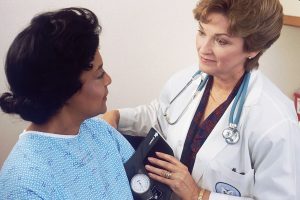What to Prepare Before TRT Austin and What to Expect After Treatment

Testosterone replacement therapy (TRT) is becoming increasingly popular among men looking to improve their health and well-being. While there are many purported benefits of TRT, it is essential to understand the potential risks associated with this type of hormone therapy.
The most common effects of TRT are an improvement in muscle mass and strength, decreased body fat, improved libido, and sexual function, increased energy levels, improved mood and memory, improved skin tone and hair health, as well as overall better health. However, there are potential risks associated with TRT. These include an increased risk of stroke or heart attack due to an increase in ‘bad’ cholesterol caused by elevated testosterone levels, an increased risk of prostate cancer due to an increase in free testosterone, and an increased risk of damage if the correct dose is taken.
It is important that any man considering TRT speaks with their doctor to thoroughly discuss the potential risks and benefits of this type of therapy. It’s also important to note that TRT should not be used as a replacement for healthy lifestyle choices, such as regular exercise and a balanced diet. It is also important to note that TRT may not be suitable for all men, and those with certain medical conditions or who take certain medications should consult their doctor before starting any hormone therapy.
Benefits of TRT Austin
Increased energy levels
Testosterone replacement therapy (TRT) can provide several benefits, including increased energy levels. As the body’s primary male hormone, testosterone plays a vital role in energy metabolism, mobilizing fats and carbohydrates for energy production. Studies have shown that TRT can increase energy levels by improving mitochondrial function and reducing fatigue and exhaustion. In addition to this, testosterone also helps regulate metabolism and appetite, making it easier to maintain a healthy weight.
Improved mood and cognition
Testosterone is often referred to as the ‘happiness hormone’ due to its role in regulating mood. Studies have shown that testosterone therapy can improve symptoms of depression, anxiety, and other mental health problems. In addition to this, TRT has been shown to improve cognitive functions, such as concentration and memory.
Increased libido
Low testosterone levels are associated with decreased libido in men. Testosterone replacement therapy can help increase sex drive by improving erectile function, arousal, and overall sexual satisfaction.
Improved muscle mass and strength
Testosterone replacement therapy can also potentially increase muscle mass and strength, as testosterone is essential for protein synthesis. Higher levels of testosterone can also help with recovery after exercise, allowing for more intense workouts.
Improved bone health
Studies have shown that TRT can improve bone mineral density, reducing the risk of fractures and osteoporosis. This is due to testosterone’s role in regulating bone metabolism and its positive effects on muscle mass and strength.
Improved Health
Testosterone plays an important role in many of the body’s functions, including metabolism, cardiovascular function, reproduction, and mood regulation. Therefore, TRT can potentially improve overall health, as increasing testosterone levels can have a positive effect on all these areas.
Overall, testosterone replacement therapy can provide many benefits to men with low testosterone levels. However, it is essential to understand the potential risks associated with this type of treatment and to speak with your doctor at TRT Austin before starting any hormone therapy.
What to Prepare Before TRT Austin
Before starting testosterone replacement therapy (TRT), it is important to discuss all potential risks and benefits with a professional. It is also important to prepare the treatment by making sure that all necessary tests have been completed and any underlying conditions, such as diabetes or heart conditions, have been diagnosed and treated.
A full physical examination is also recommended prior to starting TRT. This helps identify any possible underlying medical conditions and gives the doctor an overall picture of the patient’s health before treatment begins. Blood and saliva tests should also be completed, as they can provide useful information about hormone levels and other key markers that may affect the success of the therapy.
In addition to this, lifestyle changes should be considered before starting TRT. Eating a balanced diet, exercising regularly, and reducing stress levels can all improve testosterone production naturally without the need for hormonal treatment.
Finally, it is important to discuss any medications taken with your doctor prior to beginning TRT, as some drugs can interact with or reduce the effectiveness of hormone therapy.
Preparing for testosterone replacement therapy requires a thorough assessment of your current health and lifestyle. Your doctor at TRT Austin can help you identify any necessary changes and tests that need to be completed prior to treatment commencement. This ensures the safest and most effective possible.
What to Expect After TRT Austin
After starting testosterone replacement therapy (TRT), men can expect to see an improvement in their physical and mental health.
Varying time for results
When starting testosterone replacement therapy (TRT), it is important to note that results can vary significantly depending on the individual. While some men may experience noticeable improvements in just a few weeks, others may not notice any changes for several months. Additionally, individual response to TRT Austin can also be affected by age, diet, and lifestyle choices, as well as underlying medical conditions.
Individual response
Each person’s body responds differently to testosterone replacement therapy (TRT), so it is important to recognize and accept individual differences. For example, some men may experience a boost in energy levels, while others might find that their mood improves. Additionally, some men may notice changes in muscle mass and strength as well as an increase in sex drive. The effects of TRT also depend on the dosage and duration of the treatment prescribed by a doctor.
Adjustments to treatment
In order to ensure the effectiveness of testosterone replacement therapy, adjustments may need to be made to the initial treatment plan. For instance, dosage may need to be increased or decreased depending on the individual’s response and levels of testosterone in the body. In addition, a doctor may recommend changes to other medications, as some drugs can interact with testosterone and reduce its effectiveness.
Lifestyle considerations
Lifestyle considerations are an important part of testosterone replacement therapy (TRT). Eating a balanced diet, exercising regularly, and reducing stress can help promote the effectiveness of the treatment. A diet high in protein, healthy fats, and complex carbohydrates can help maintain healthy testosterone levels while avoiding sugary and fatty foods that can hinder hormonal balance. Regular exercise not only






